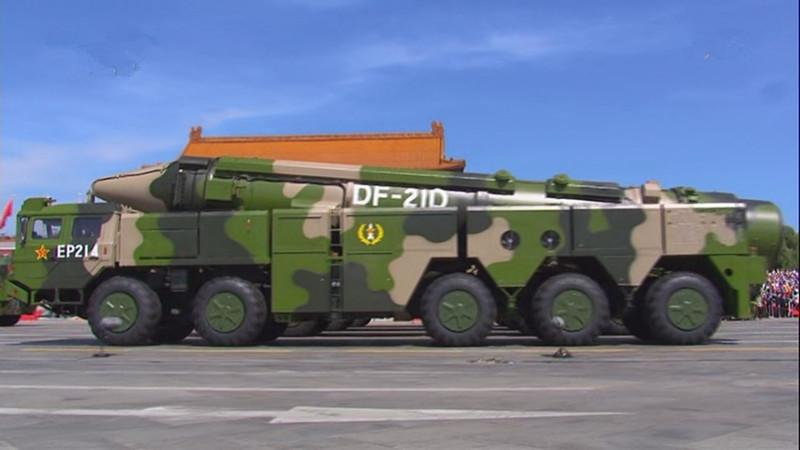At the Committee to Protect Journalists, Yaqiu Wang reports on the latest blow to the traditional liberalism of Guangdong’s Southern Media Group following last week’s grand parade in Beijing:
The day after a lavish military parade was held in Beijing on September 3 to mark the 70th anniversary of the end of World War II and China’s role in defeating Japan, three major Chinese newspapers–Southern Weekend [or Weekly], Southern Metropolis, and Southern Daily–published pages of photographs and articles brimming with nationalist sentiment. The papers all belong to the Southern Media Group, often called the Southern Series, a state-owned media conglomerate based in Guangdong province. “The Southern Series has opened a new chapter walking on the correct road and developing fast,” wrote Xinhua, China’s state press agency, in praise of the newspapers’ coverage.
Yet for journalists working at the Southern Series, once known for its liberal-leaning political stance and investigative reporting, this “correct road” is not a positive sign for press freedom.
[…] The Southern Series was once one of the most financially successful commercial media companies in China. However, according to an annual report on the Chinese media industry published by Tsinghua University and the Chinese Academy of Social Sciences, in 2014 the government subsidized the group by 126 million yuan (US$20 million). “Censorship causes us lost readership, then we grow increasingly reliant on government subsidies. More subsidies brings more control and censorship,” said the second reporter. [Source]
Southern Weekly’s current difficulties began in 2013, when it became the center of widespread media freedom protests over tampering with its New Year editorial. Its varying fortunes go further back, however. A 2008 profile at Danwei described the publication as:
A popular and well-regarded weekly newspaper known for investigative exposés and a revolving door that lands editors in jail.
[…] Conservatives and leftists tend to see Southern Weekly as the sum of what’s wrong with liberal, western-leaning southern newspapers. Its editors cover stories that the authorities don’t want played up, harming societal harmony, while its columnists perennially push for a rapid increase in democracy, civil society, and freedom of expression despite their possible incompatibility with Chinese-style socialism.
Because of the friction with the authorities, the paper’s tenor changes from one year to the next, as editors are forced out and self-restraint takes over. Many people who first started reading it in the late 90s complain that it’s just a poor imitation of what it was then. However, at the time of this writing, Southern Weekly is no longer as irrelevant as it once was. [Source]
Wang also reveals something of the scale on which Chinese authorities issue censorship and propaganda directives like those published in CDT’s “Ministry of Truth” series. From CPJ:
The daily censorship of newspapers in China is carried out mainly in two ways: censorship orders sent directly from the government, and through an internal censorship department. Both journalists with whom CPJ spoke said that government directives arrive so quickly and frequently that it leaves the internal censorship personnel with little work to do. Orders to not write about something come before journalists even start to write. [Source]
One directive posted this week, in which the Central Propaganda Department ordered media outlets to extol “China’s bright economic future,” was labeled “[2015] #320.” This implies an average rate of almost two per weekday this year from that department alone. Instructions also emanate from other central organs such as the State Administration of Press, Publication, Radio, Film and Television, as well as provincial and other lower-level bodies.
One common command is to only use copy from the state news agency Xinhua or other “authoritative” sources. This was issued, for example, after last month’s disastrous explosions in Tianjin. After new software from Tencent successfully generated a 916-word business report this week, one journalist suggested that forced reliance on approved material could make Chinese journalists particularly vulnerable to wholesale replacement. From He Huifeng at South China Morning Post:
“The piece is very readable. I can’t even tell it wasn’t written by a person,” said Li Wei, a reporter based in the southern Chinese manufacturing boomtown of Shenzhen.
[…] More worryingly for local Chinese reporters, the threat to their careers may dwarf the one faced by their peers in other countries.
“You know, many reporters working for government-run newspapers across the country usually copy and paste the statements and news press. They are not allowed to express doubt or really investigate reports against the authorities,” said one Chinese reporter based in Guangzhou.
“So robot reporters could easily replace a lot of Chinese reporters like this nationwide.” [Source]
Robotic reporters should at least be free from the character flaws of human journalists, whom China Daily recently warned “may be narcissistic, patronizing and find it hard to accept advice.” The wave of defiantly independent coverage that followed the Tianjin disaster suggested that, despite the fate of the Southern Media Group, many still also find it hard to accept orders.








